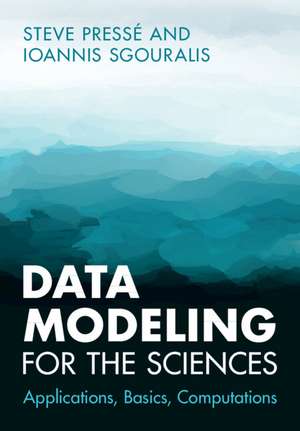Data Modeling for the Sciences: Applications, Basics, Computations
Autor Steve Pressé, Ioannis Sgouralisen Limba Engleză Hardback – 30 aug 2023
Preț: 431.03 lei
Preț vechi: 468.51 lei
-8% Nou
Puncte Express: 647
Preț estimativ în valută:
82.50€ • 89.65$ • 69.35£
82.50€ • 89.65$ • 69.35£
Carte disponibilă
Livrare economică 31 martie-14 aprilie
Livrare express 14-20 martie pentru 52.15 lei
Preluare comenzi: 021 569.72.76
Specificații
ISBN-13: 9781009098502
ISBN-10: 1009098500
Pagini: 346
Dimensiuni: 264 x 185 x 31 mm
Greutate: 1.06 kg
Editura: Cambridge University Press
Colecția Cambridge University Press
Locul publicării:Cambridge, United Kingdom
ISBN-10: 1009098500
Pagini: 346
Dimensiuni: 264 x 185 x 31 mm
Greutate: 1.06 kg
Editura: Cambridge University Press
Colecția Cambridge University Press
Locul publicării:Cambridge, United Kingdom
Cuprins
Part I. Concepts from Modeling, Inference, and Computing: 1. Probabilistic modeling and inference; 2. Dynamical systems and Markov processes; 3. Likelihoods and latent variables; 4. Bayesian inference; 5. Computational inference; Part II. Statistical Models: 6. Regression models; 7. Mixture models; 8. Hidden Markov models; 9. State-space models; 10. Continuous time models*; Part III. Appendix: Appendix A: Notation and other conventions; Appendix B: Numerical random variables; Appendix C: The Kronecker and Dirac deltas; Appendix D: Memoryless distributions; Appendix E: Foundational aspects of probabilistic modeling; Appendix F: Derivation of key relations; References; Index.
Notă biografică
Descriere
A self-contained and accessible guide to probabilistic data modeling, ideal for students and researchers in the natural sciences.
